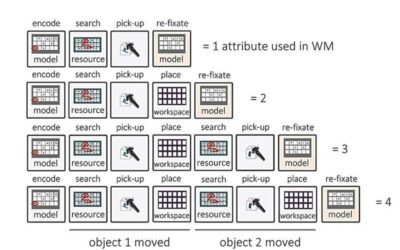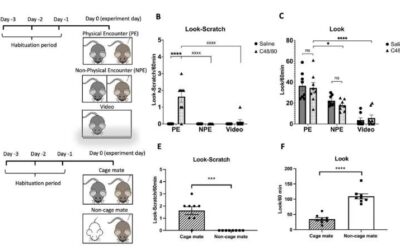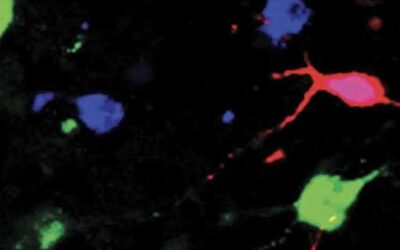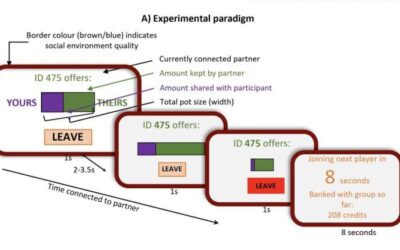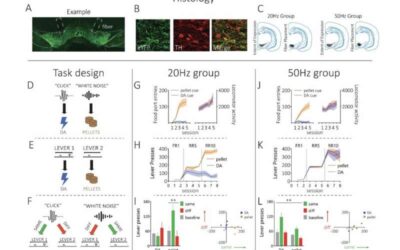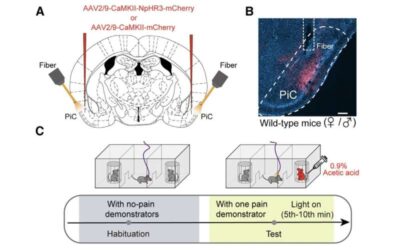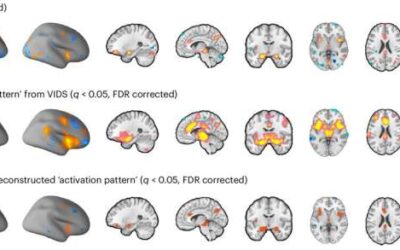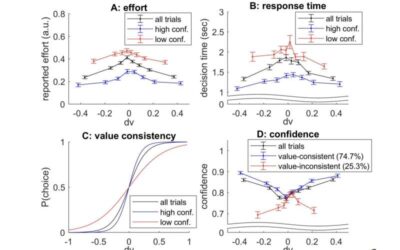Humans are innately well-equipped to complete procedural tasks, such as following a recipe and assembling furniture. While completing these tasks, however, people can sometimes encounter visual distractors, such as irrelevant ingredients in the same cupboard as those...
MEDICALXPRESS
Study finds social interactions and olfactory cues prompt contagious itch in mice
Humans and other mammals can sometimes experience itch, an uncomfortable sensation that prompts them to scratch specific parts of their bodies. Past studies on humans and other primates have found that itch can sometimes be contagious.
Study shows orexin neurons can track how fast blood glucose changes
The concentration of glucose in the blood of humans continuously changes in response to what they eat and the activities they engage in. While many studies have investigated changes in blood glucose, the role of different neurons in tracking and predicting these...
Study shows that opportunity costs influence when people leave social interactions
Psychology researchers and neuroscientists have been trying to understand the principles guiding social interactions for decades. While their studies have yielded interesting results, many questions remain unexplored or unanswered.
Study sheds new light on the contribution of dopamine to reinforcement learning
The neurotransmitter dopamine has often been linked to pleasure-seeking behaviors and making stimuli paired with rewards (e.g., food, drinks) valuable. Nonetheless, the processes through which this key chemical messenger contributes to learning have not yet been fully...
Male and female mice exhibit different empathic behaviors to others’ pain
Social interactions are multi-faceted experiences that entail understanding the emotional states of others and responding appropriately. Neuroscientists and psychologists have been studying social interactions for decades, in the hope of understanding their neural and...
Creativity and humor shown to promote well-being in older adults via similar mechanisms
Many people associate aging with a decline in cognitive function, health issues, and reduced activity. Uncovering mental processes that can boost the well-being of the older adults could be highly beneficial, as it could help to devise more effective activities aimed...
The neural signature of subjective disgust could apply to both sensory and socio-moral experiences
Disgust is one of the six basic human emotions, along with happiness, sadness, fear, anger, and surprise. Disgust typically arises when a person perceives a sensory stimulus or situation as revolting, off-putting, or unpleasant in other ways.
A minimal cognitive architecture reproduces control of human decision-making processes
Neuroscientists and psychologists have been trying to pinpoint the processes behind human decision-making for decades. While their efforts led to numerous interesting insights, the intricacies of complex decision-making remain poorly understood.
Evidence of a travel direction signal that is independent from head direction in humans
We generally assume that when humans are walking or otherwise moving in space, their head faces towards the direction they are traveling in. Nonetheless, travel direction and head direction are distinct factors associated with the processing of different types of...

